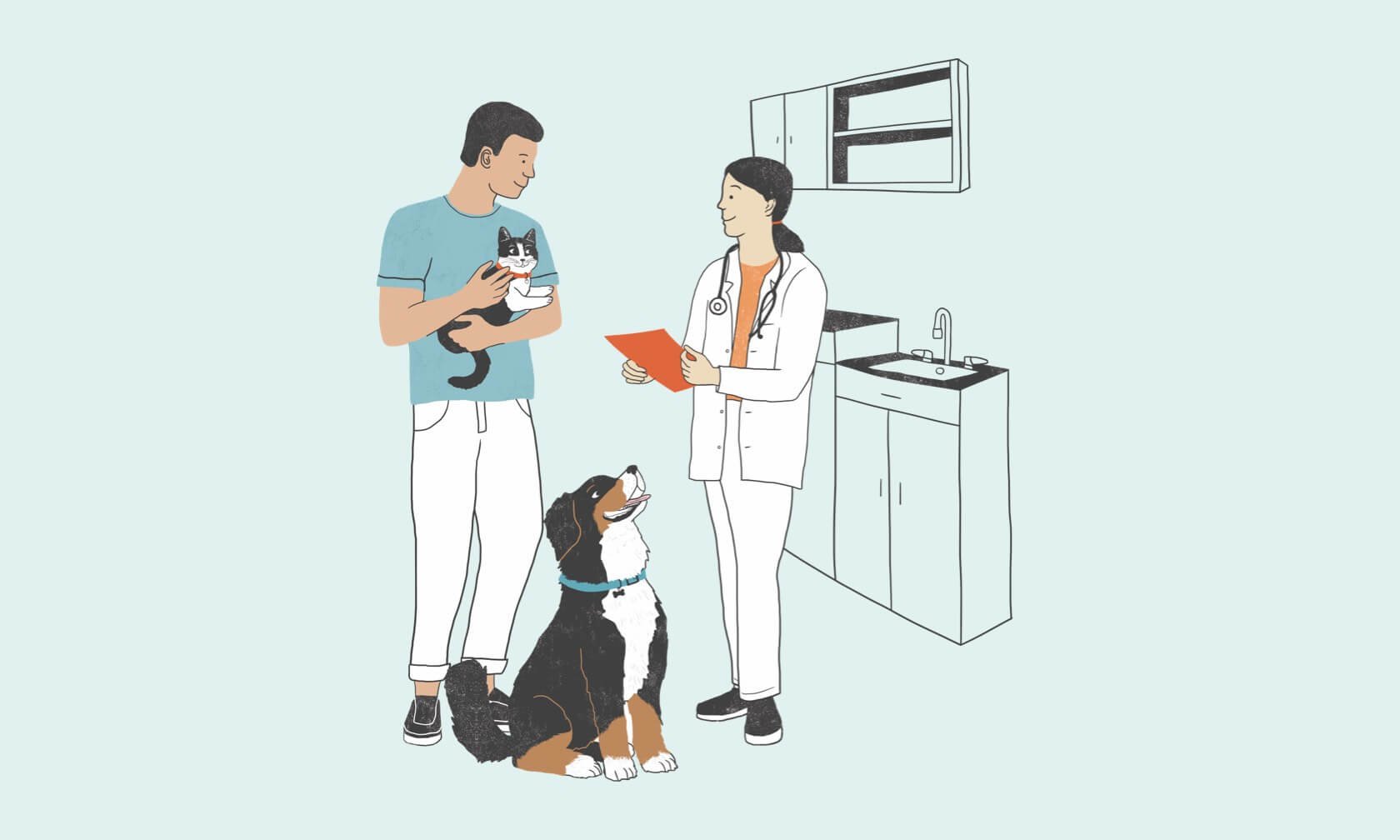You’ve probably heard of pancreatitis in humans, but did you know dogs can also come down with this painful condition? The pancreas is a tiny organ, but pancreatitis in dogs can cause some serious damage. It can sometimes be complicated to diagnose, and, in severe cases, can be fatal. At the least, it causes considerable pain and discomfort for our canine family members that will get worse if left untreated. It’s vitally important that dog owners learn a bit about pancreatitis — what it is, signs to watch for, and why veterinary care is essential not only for our dog’s comfort but also for their overall health and longevity.
What is Pancreatitis, and How Do Dogs Become Affected?
To understand pancreatitis, you first need to know a little about the pancreas. This V-shaped organ has an important job. It secretes digestive enzymes, hormones, and other substances to help your dog absorb vitamins, nutrients, and minerals from food.
The trouble starts with inflammation. When the pancreas is inflamed, enzymes within the pancreas are activated. Over time, these enzymes break down the pancreatic tissue.
There are two types of pancreatitis in dogs.
- Acute pancreatitis. This form comes on suddenly, but the inflammation generally subsides, and little permanent damage is done. However, once a dog has an acute case they’re likely to have repeat flare-ups, ultimately leading to a chronic condition.
- Chronic pancreatitis. On the other hand, the chronic condition means the pancreas is in a constant state of inflammation. While symptoms may come and go with flare-ups and calm periods, permanent damage is inevitable.
Risk Factors of Pancreatitis in Dogs
The causes of pancreatitis aren’t always obvious. Here are a few of the more common risk factors:
- A bad reaction to a new or high-fat food. Table scraps are frequent offenders.
- High levels of fat in the blood. This can be a result of a high-fat diet. Certain breeds are also more prone to having high-fat levels in the blood, unrelated to diet. Some of these breeds include Schnauzers, Beagles, Poodles, Shetland Sheepdogs, Collies, and Cocker Spaniels[1].
- Obesity. Obesity means more fat in the blood and visceral fat around the organs and body wall.
- Abdominal trauma. Injuries around the stomach — even simply being run into by another large pet — can cause inflammation in the pancreas.
- Other diseases. Pancreatitis can be a secondary issue stemming from diabetes mellitus, autoimmune diseases, cancer, kidney, liver, or Cushing’s disease, among others.
- Medications. Any medication can cause inflammation of the pancreas given the right conditions.
- Toxins. There are several household and environmental toxins that can lead to inflammation of the pancreas. Zinc, lilies, and bone and blood meal fertilizers are just a few.
- Infection. Some infectious agents can lead to pancreatitis, like intestinal bacteria, intestinal parasites, and parvovirus.
Symptoms and Diagnosis of Pancreatitis in Dogs
Unfortunately, the symptoms of pancreatitis are quite common to other conditions that affect the gastrointestinal tract — and there’s no single test to confirm a diagnosis of pancreatitis. Generally, your veterinarian will use a combination of blood tests, x-rays, an abdominal ultrasound, a urinalysis, and a detailed discussion with you about history and diet to come up with possible causes and rule out others.
If your dog displays any of the following clinical signs, take note of their severity and what’s happening at the time. Then make a call to your veterinarian.
- Absent or reduced appetite
- Weakness or collapsing
- Pain in the abdominal area, indicated by panting, restlessness, arching the back, or trembling
- Diarrhea

Treatment for Dogs with Pancreatitis
There is no medical cure for pancreatitis. Generally, treatment consists of managing any underlying cause, if identified, and providing supportive care to minimize the impact of your dog’s clinical signs until the flare-up subsides. IV fluids, nausea medications, nutritional support, and pain control can be used to keep your dog as comfortable as possible.
Diets for Dogs with Pancreatitis
You can focus on dietary management and keeping your dog away from unnecessary fats in food and treats at home. Some fat is necessary for your dog’s health and will be found in their usual diet at adequate levels. The key is to avoid excessive fats from things like table scraps and rich treats. Your veterinarian will probably suggest a bland, low-fat diet for a few weeks before slowly transitioning to a regular diet, or your dog may have to be on a long term diet made for dogs prone to pancreatitis.
Can Pancreatitis in Dogs Be Prevented?
While there’s no surefire way to prevent pancreatitis, there are steps you can take to lessen your dog’s chances of coming down with this painful condition. Keep their weight under control. Your veterinarian can help you determine an ideal weight based on breed, activity level, and health factors. Avoid high-fat foods and table scraps. And if your dog shows any signs, or just isn’t acting like themselves, visit your veterinary clinic for a check-up. Whether it’s pancreatitis or something else, early diagnosis is important to minimize possible damage.
Remember, even if your dog has just one bout of pancreatitis, their odds of having it again are considerable. Left untreated, it can be debilitating and even fatal. Thankfully, you’ve taken the first steps here to understand more about pancreatitis prevention and treatment for your furry family member.
ZPC-01264R1



